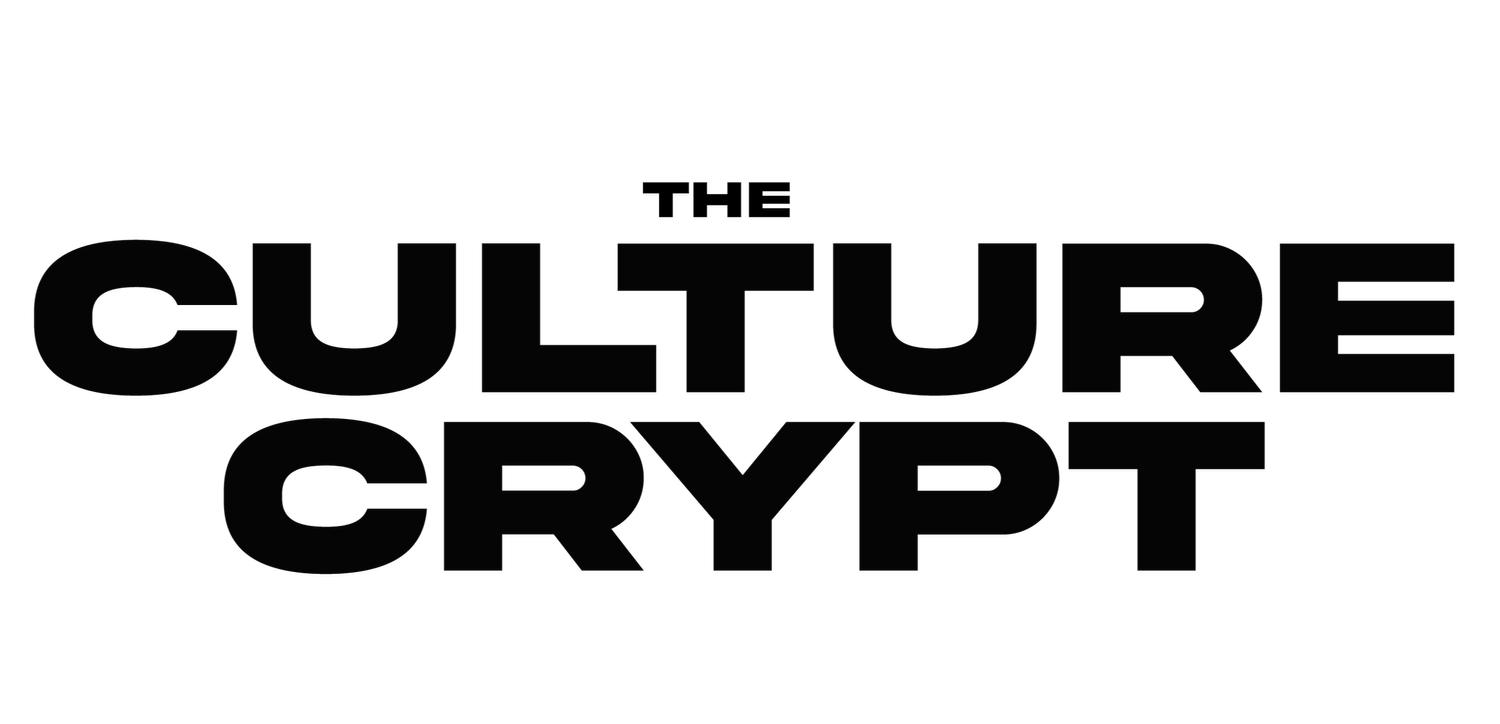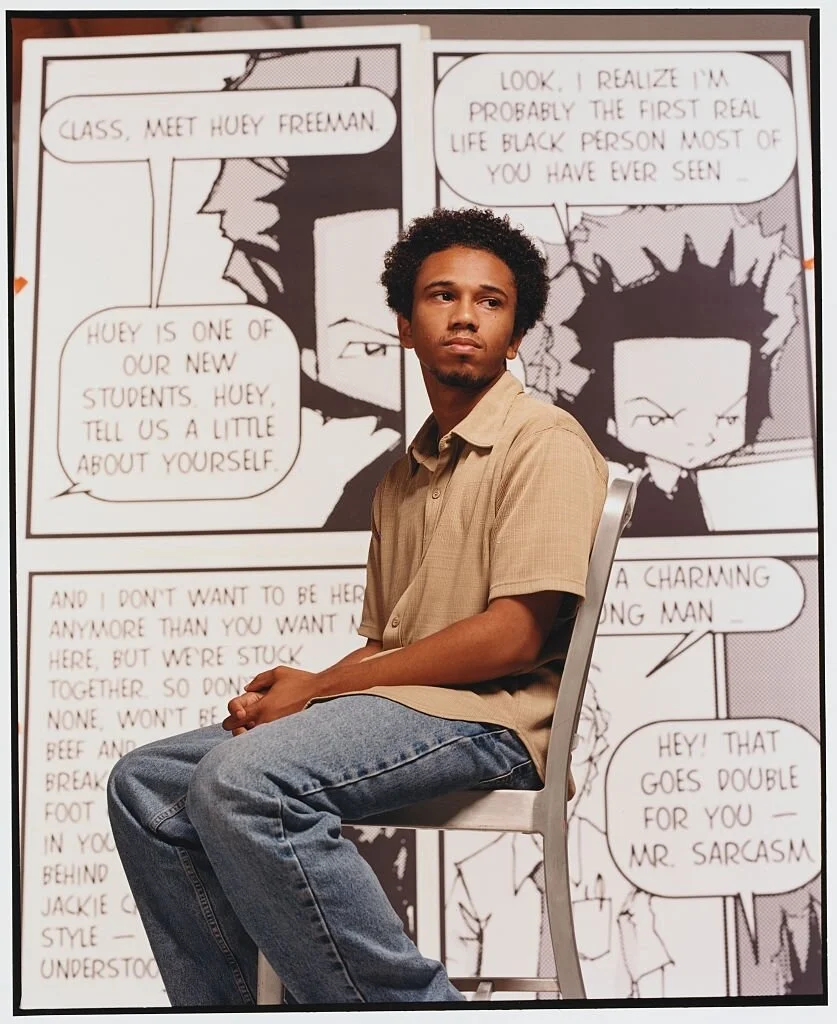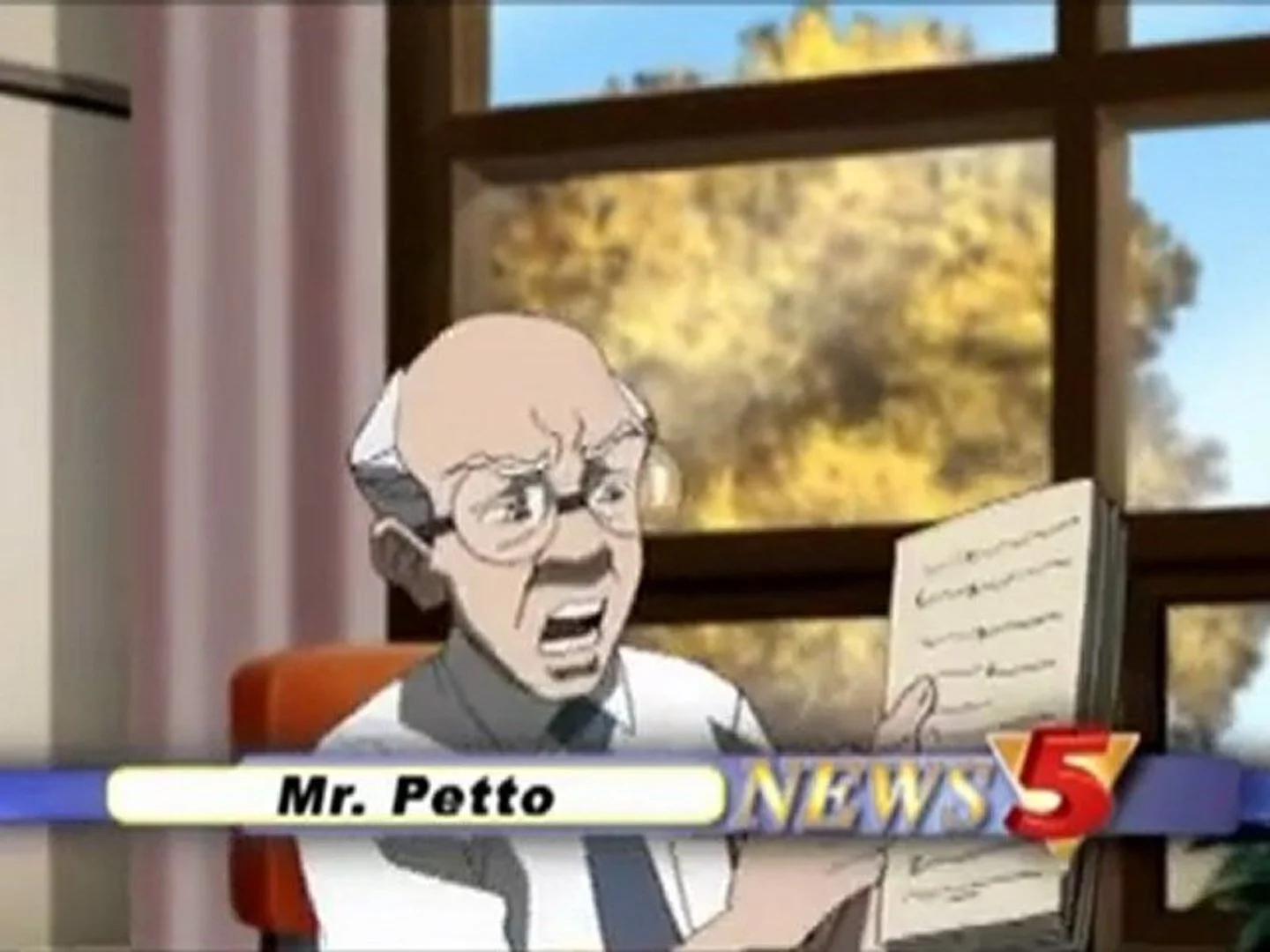How The Boondocks Deconstructs Black Identity
A look back at how The Boondocks satirised and broke down the many recurring themes and contradictions within the Black community.
The Boondocks is a beloved multimedia franchise conceived by writer, lecturer and cartoonist Aaron McGruder. Since 1996, The Boondocks series has spawned books and most notably, a television series.
The show ran for four seasons from 2005 to 2014. The series follows Huey, Riley and Grandad Freeman throughout the fictional suburb of Woodcrest.
The Boondocks excels because it can be enjoyed as both a comedy and a visual essay. It explores the many layers of the Black experience.
Protagonists Huey and Riley (voiced by Regina King) are the manifestations of two very different types of Black men. Huey is described by his Grandad as a “domestic terrorist”. Huey believes that many parts of Black culture are unconsciously damaging.
Huey detests everything from; Black movies and media that reinforce negative stereotypes, “soul food” and BET. His younger brother Riley, on the other hand, is intentionally a walking cliché. Riley is hypermasculine, money-obsessed and involves himself in criminal activity. This dynamic between the Freeman brothers is what propels the show forward.
“It would be inaccurate to say that Huey’s opinions are my own. I think there’s a broad opinion being put through the strip with a combination of all the characters’ voices.”
McGruder cleverly uses his characters to craft his narrative. This can be seen with the coonery and pandering to white people with someone like Tom or the internalised self-hatred on display by Uncle Ruckus. An episode like season two's ‘The S Word’ delves into the debate of non-Black people saying the N-word.
In an argument, Riley’s teacher spews slang at him. Unfortunately for the teacher, he showed ignorance by blinding repeating the N-word to Riley sparking nationwide outrage. From here, Riley milks the situation and seeks support for emotional damages.
Tom Dubois embodies the “Uncle Tom” figure throughout the show. From his presentation, vocabulary and interests, he is presented as a gentrified, whitewashed character who works for “the man”. This proximity to whiteness on display by Tom is likely McGruder commenting on human gentrification. Tom is a satirical take on Black people who intentionally stray as far away from their heritage and identity as possible. In theory, this is in hopes of blending into a Caucasian power structure.
Sarah DuBois, on multiple occasions, takes a liking to players and Black caricatures like Usher, Pretty Boy Flizzy and a Stinkmeaner-possed version of her husband. This is likely done to show how society fetishes and reduces Black men to their most animalistic and negative qualities to appease others.
Ruckus is one of the show’s most polarising and iconic characters. As mentioned above, Ruckus is a dark-skinned middle-aged Woodcrest resident with a deep-rooted hatred for Black people. He describes his dark complexion as the result of a fictional disease called “re-vitiligo, the opposite of what Michael Jackson had”. Ruckus is often presented as the central antagonist of the show, terrorising the boys and grandad.
Behind all the witty satire and Black jokes, Ruckus’ character symbolises the internalised hatred many people of colour have adopted thanks to mainstream media. Ruckus detests the colour of his skin. Uncle Ruckus goes out of his way to seeks to deify the white man while shunning and disrespect his own people. Uncle Ruckus does this even if they are a detriment to his safety. This is made clear in the episode ‘The Story of Jimmy Rebel’, where Ruckus befriends a racist country singer.
The show also pokes holes at toxic masculinity. Whether it’s rapper Gangstalicious’ closet homosexuality or Riley’s proclamation of “that’s gay” for things he deems as lame, the show often tries to get under the socially constructed barrier many Black men put up.
When Obama was elected in 2008, the show saw fit to ridicule those voters who only supported Obama solely because he’s Black. The Boondocks comically chastised Granddad for this. McGruder is not telling the audience to condemn Obama. In reality, he is asking his audience to think critically about their decisions.
In summary, The Boondocks is essential viewing for Black and non-Black people alike. Through comedy, McGruder cleverly crafts the perfect piece of counter-culture to accompany its peers on BET. The show is genius as it can be enjoyed on a shallow, comedic level. However, on closer inspection, the show can be picked apart and analysed for greater socio-political depth.
The Boondocks does not tell its audience there is one correct perspective. In reality, the show presents multiple, varying and wide-ranging ideologies and asks the viewer to challenge them.
No other show tackled topics such as; celebrity obsession, Black-on-Black crime, snitching, music and cancel culture with such brilliance.
In 2019, it was announced the show is set to return on HBO Max with two twelve-episode seasons. With the untimely passing of actor John Witherspoon, the release of the show’s revival is currently unknown.






